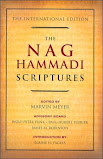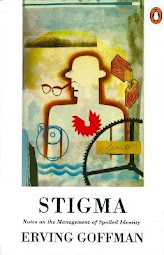The Secret of Light (book)
One of the most beautifully written and accessible mystical texts of our time is The Secret of Light by Walter Russell. It captures the truths of esoteric Christianity (such as that found in the sermons of Meister Eckhart), and the Hindu Upanishads, without getting bogged down in unapproachable terminology or culturally-specific mythology. The essence of Russell’s text is that each human is an eternal consciousness that both experiences and is the manifestation of a single, eternal God-Mind. A human being is a conscious mind that experiences separate physical forms via waves and pulses of light which create the electrical charges governing her body and thoughts. As Russell puts it, “Electricity expresses the desire in the God-Mind for creative expression by seemingly dividing the One still light into transient waves of spectrum divided positive-negative colors of light.” We find similarities in quantum physics such as in the works of David Bohm who built his theories around the concepts of light and the seamless unity of matter and mind.
What does this mean for our ascension? In a manner akin to Plato and his great interpreter Plotinus, Russell tells us that human growth entails turning away from the electrically determined physical reality towards the singularity of the Eternal Source. In doing so, we ascend into our proper nature: union with the God-Mind. Also, it is only through momentary union of this type that true creatively is found, while mystical rapture occurs through a lengthy abandonment of physical sensory input and full immersion with pure consciousness, bringing one into a direct experience of the God-Mind.
As in the Hindu tradition, Russell presents life as a dramatic play. The play entails the God-Mind splitting into separate realities (individual consciousness) only to find union with itself during the final act with the quickening of singularity. The play then starts over again to begin another cycle of birth, death, and ascension. Some of the finest parts in The Secret of Light are when Russell describes the theatrical nature of reality:
“We actors of the play must, therefore, be content with the lines of the play revealed to each of each of us in Light. We must, likewise, be ever joyous at our continuous transformation, as each one of us learns our part, line by line, the better to fulfill it worthily…All parts of the play are experiences which become the action of the play. All man’s experiences are part of his unfolding. Each experience is a part of his journey from the dark to the Light. All experiences are steps in the journey to his mountain top of glory.”
“Also, he must know that this forever creating universe which seems so real to him is but a cosmic cinema, conceived by the Master Playwright. It is but an electrically projected, spectrum-colored light and sound-wave motion picture play of cause and effect thrown on a black screen of imaged space and time.”
As life is theatric by nature, villains are needed for heroes to emerge; trials are required for the reward of great achievements, and the seemingly dense and determined physical reality provides the perfect backdrop against which we can fully appreciate ultimate union with the Divine. We find a similar sentiment in gnostic texts such as the Gospel of Philip: “Light and Darkness, life and death, right and left, are brothers of one another. They are inseparable.” William Shakespeare also tells us in his play As You Like It, “All the world's a stage, And all the men and women merely players. They have their exits and their entrances…”
In truth there is no objective evil that stands equal to the God-Mind. Darkness exists to convey the light. This idea has been lost on those who rush towards a worship of the dark which is but a necessary character in the great cosmic play. Rather, we can embrace the tension offered by darkness as the spice to experiencing the light, and central to the greatest story ever told. It is through the escape of all such dualism that we truly begin ascension into our higher selves.



